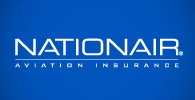A.D. Issued for Wing Skin Inspection

No doubt this new airworthiness directive will be an inconvenience, to say the least, to our owners and operators. Aside from the expense of having the work done, the aircraft will be unavailable for many weeks while the inspection and required modifications are completed. We are working with our factory-authorized service centers to ensure that both the materials and the capacity are available to the fleet in order to minimize aircraft downtime.
Twin Commander Aircraft continues to monitor and confront airframe issues the way we have always dealt with them�with a proactive approach. We must be eternally vigilant in identifying and addressing these issues. We devote considerable engineering resources to this effort because we are dedicated to maintaining the strength and superiority of the Commander fleet. We are committed to ensuring that Twin Commander owners can be proud of the performance of their aircraft and confident in continuing safe operation of them for decades to come.
The FAA has issued Airworthiness Directive 2009-25-02, effective January 8, 2010, that requires owners of 690, 690A, and 690B Twin Commanders (with the exception of six serial number- specific aircraft) to have their aircraft inspected for corrosion between the upper wing skin panels and engine mount beam support straps. The inspection must be performed within the next 150 hours time in service beginning January 8, or by January 8, 2011, whichever comes first.
The AD is based on Twin Commander Alert Service Bulletin 237, issued May 13, 2005. The service bulletin describes an inspection process that calls for removal of the upper engine nacelles to expose the engine mount beam support straps, and removal of the straps to inspect for corrosion on the exposed upper wing skins.
At a minimum, the steel engine mount beam support straps must be replaced with new straps that feature enhanced corrosion protection. If corrosion is found, the upper wing skins must be replaced. The service bulletin allows for various replacement options depending on the extent of corrosion. Different options can be used on right and left wings.
Service Bulletin 237 was created as a result of the discovery of corrosion on an aircraft that was undergoing other maintenance. When Twin Commander Aircraft was notified of the presence of corrosion, a check of several other aircraft within the service center network was conducted and it was determined that other aircraft may be affected.
It was then determined that no safety of flight issue existed, but if the corrosion was allowed to continue to grow, the integrity of the landing gear support and engine mount structure may be compromised. This could result in damage to the aircraft during landing.
The service bulletin was developed to provide several options to the owner to minimize the impact of accomplishing the inspection and modification as well as incorporating improved processes to ensure that corrosion in this area would not re-occur.
Some 70 affected airplanes have already been inspected and modified according to the service bulletin, but approximately 270 still must be inspected. Twin Commander Aircraft LLC has been gearing up for the required inspection by preparing the necessary replacement parts kits.
Authorized service centers also have been preparing by alerting customers of the impending airworthiness directive, and sending technicians to special training at FlightSafety International. (Because of the complexity and critical nature of the work and inspection, the service bulletin specifies that it be performed by technicians who have completed FSI's SB237 course.)
Delaying the inspection and modification of your aircraft may result in the inability to have the work done within the compliance period because service centers may be too busy with inspections on other affected aircraft. To ensure compliance, call your authorized twin Commander service center now and schedule your SB237 inspection.
Discuss this article in the forums...







